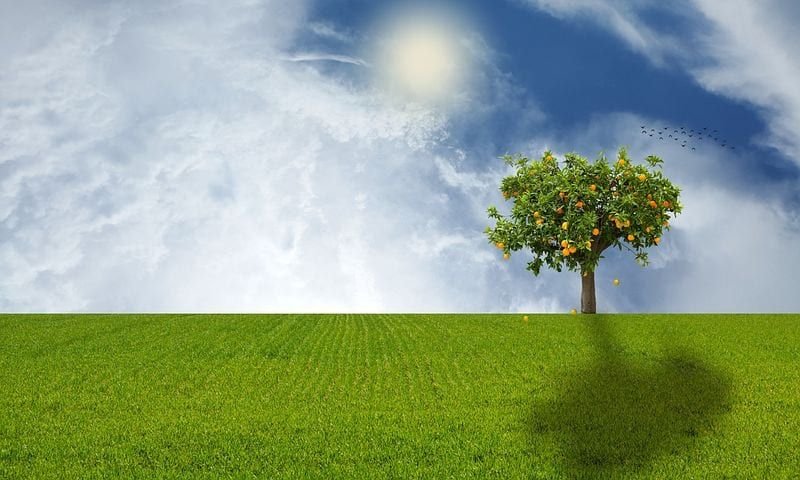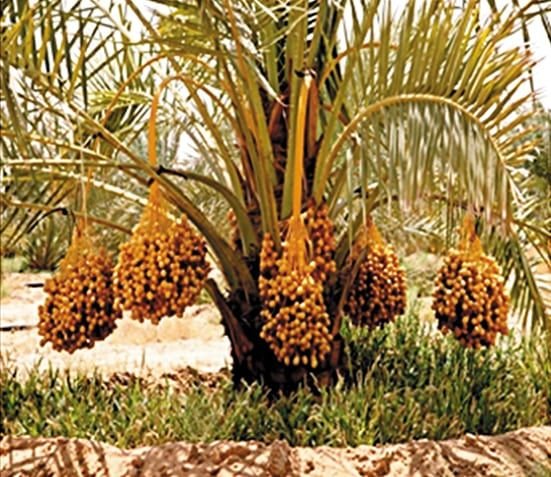In The Name of Allah, The Most Merciful, The Bestower of Mercy.
Allah, The Exalted, said:
وَمِنَ النَّاسِ مَن يَتَّخِذُ مِن دُونِ اللّهِ أَندَاداً يُحِبُّونَهُمْ كَحُبِّ اللّهِ وَالَّذِينَ آمَنُواْ أَشَدُّ حُبًّا لِّلّهِ
And of mankind are some who take (for worship) others besides Allah as rivals (to Allah). They love them as they love Allah. But those who believe, love Allah more (than anything else)]. [Al-Baqarah. 165]
It is reported that Lionel Messi said that he doesn’t like being called ‘God’ by fans and that he said: “I’m not worried by it, but it’s true that I don’t like it. It’s nice to be praised because people are being respectful. They don’t say it with any ill intent, but actually, with the complete opposite. But I think it’s very exaggerated to call me that.” [End of quote]
Imam As-Sadi, may Allah have mercy upon him, said: The (true) believers love Allah more than the love that the idol worshippers have for the partners they associate with Allah in worship. This is because they (believers) have a pure and sincere love for Allah. As for the polytheists, they associate partners to Allah in worship out of the love they have for their false objects of worship. The believers love The One (Allah) who deserves true love in reality, for true love of Allah is the very thing upon which depends the rectification of a person, his happiness and success. As for the polytheist, they love those who are not worthy of being given any love, rather having love for such things is the very reason behind wretchedness, corruption and loss.
Allah, The Exalted, said:
أَمْ اتَّخَذُوا آلِهَةً مِنْ الأَرْضِ هُمْ يُنشِرُونَ
لَوْ كَانَ فِيهِمَا آلِهَةٌ إِلاَّ اللَّهُ لَفَسَدَتَا فَسُبْحَانَ اللَّهِ رَبِّ الْعَرْشِ عَمَّا يَصِفُونَ
لاَ يُسْأَلُ عَمَّا يَفْعَلُ وَهُمْ يُسْأَلُونَ
أَمْ اتَّخَذُوا مِنْ دُونِهِ آلِهَةً قُلْ هَاتُوا بُرْهَانَكُمْ هَذَا ذِكْرُ مَنْ مَعِيَ وَذِكْرُ مَنْ قَبْلِي بَلْ أَكْثَرُهُمْ لاَ يَعْلَمُونَ الْحَقَّ فَهُمْ مُعْرِضُونَ
وَمَا أَرْسَلْنَا مِنْ قَبْلِكَ مِنْ رَسُول ٍإِلاَّ نُوحِي إِلَيْهِ أَنَّهُ لاَ إِلَهَ إِلاَّ أَنَا فَاعْبُدُونِ
Or have they taken (for worship) aliha (gods) from the earth who raise the dead? Had there been therein (in the heavens and the earth) gods besides Allah, then verily both would have been ruined. Glorified be Allah, the Lord of the Throne, (High is He) above what they attribute to Him! He cannot be questioned as to what He does, while they will be questioned. Or have they taken for worship (other) aliha (gods) besides Him? Say: “Bring your proof:” This (the Qur’an) is the Reminder for those with me and the Reminder for those before me. But most of them know not the Truth, so they are averse. And We did not send any Messenger before you (O Muhammad) but We inspired him (saying): La ilaha illa Ana [none has the right to be worshipped but I (Allah)], so worship Me (Alone and no one else).” [Al-Anbiyaa. 21-25]
Allah, The Exalted, stated His disapproval of the polytheists – those who (worship things adopted as)gods in the earth, even though these gods are absolutely incapacitated and powerless. Neither are they are able to bring them back to life nor resurrect them, and this is further explained by the statement of Allah:
وَاتَّخَذُوا مِنْ دُونِهِ آلِهَةً لاَ يَخْلُقُونَ شَيْئًا وَهُمْ يُخْلَقُونَ وَلاَ يَمْلِكُونَ ِلأَنفُسِهِمْ ضَرًّا وَلاَ نَفْعًا وَلاَ يَمْلِكُونَ مَوْتًا وَلاَ حَيَاةً وَلاَ نُشُورًا
Yet they have taken besides Him other aliha (gods) that created nothing but are themselves created, and possess neither hurt nor benefit for themselves, and possess no power (of causing) death, nor (of giving) life, nor of raising the dead. [Al-Furqan. 3]
Allah said:
وَاتَّخَذُوا مِنْ دُونِ اللَّهِ آلِهَةً لَعَلَّهُمْ يُنصَرُونَ
لاَ يَسْتَطِيعُونَ نَصْرَهُمْ وَهُمْ لَهُمْ جُندٌ مُحْضَرُونَ
And they have taken besides Allah aliha (gods), hoping that they might be helped (by those so-called gods). They cannot help them, but they will be brought forward as a troop against those who worshipped them (at the time of Reckoning). [YaaSin 74-75]
A polytheist worships a created thing that can neither benefit nor harm, and he abandons worshipping Allah sincerely – The One Who is Perfect, and in His Hand is the absolute control over all benefit and harm. This shows that a polytheist is not blessed, his ignorance is clearly established as well as the severity of his unjust behaviour towards Allah, for indeed it is only befitting that there is only one [true] deity, just as there cannot be except one [true] Lord. And because of this, Allah [The Exalted] said:
لَوْ كَانَ فِيهِمَا آلِهَةٌ إِلاَّ اللَّهُ لَفَسَدَتَا فَسُبْحَانَ اللَّهِ رَبِّ الْعَرْشِ عَمَّا يَصِفُونَ
Had there been therein (in the heavens and the earth) gods besides Allaah, then verily both [i.e. the heavens and the earth] would have been ruined. Glorified be Allah, the Lord of the Throne, (High is He) above what they attribute to Him! [Al-Anbiyaa. 22]- Meaning, both the heavens and the earth would have been ruined as well the creation within them. The heavens and the earth – as one can see – are in a perfect state, intact and in perfect order. Neither is there any defect in them and obstacles (to its perfect order) nor conflict in its organisation. Thus, this shows that the One who controls and regulates its affairs is One- its Lord is one and the deity (under whose control they are maintained) is One. If it were the case that the heavens and the earth have two (deities) that control and regulate its affairs- two lords or more, then its perfect order would have been ruined and its foundations would have been undermined. This is because they would have been obstacles and opponents to one another; so if one of them wishes to plan and administer something and the other one wishes that it should not take place, it would be impossible for both their wishes to be fulfilled. The fulfilment of the wishes of one would have shown that the other one is weak and unable do whatever he wants, and it is impossible that both of them will agree on everything. Therefore, the wish of The Irresistible [i.e. Allah- the only True Lord and besides Him every other deity is false]- is what will be fulfilled without anyone being able to prevent or repel it. This is why Allah [The Exalted] said:
مَا اتَّخَذَ اللَّهُ مِنْ وَلَدٍ وَمَا كَانَ مَعَهُ مِنْ إِلَهٍ إِذًا لَذَهَبَ كُلُّ إِلَهٍ بِمَا خَلَقَ وَلَعَلاَ بَعْضُهُمْ عَلَى بَعْضٍ سُبْحَانَ اللَّهِ عَمَّا يَصِفُونَ
No son (or offspring or children) did Allah beget, nor is there any ilah (god) along with Him; (if there had been many gods), behold, each god would have taken away what he had created, and some would have tried to overcome others! Glorified be Allah above all that they attribute to Him! [Al-Muminun. 91] [1]
Allah said:
يُولِجُ ٱلَّيۡلَ فِى ٱلنَّهَارِ وَيُولِجُ ٱلنَّهَارَ فِى ٱلَّيۡلِ وَسَخَّرَ ٱلشَّمۡسَ وَٱلۡقَمَرَ ڪُلٌّ۬ يَجۡرِى لِأَجَلٍ۬ مُّسَمًّ۬ىۚ ذَٲلِڪُمُ ٱللَّهُ رَبُّكُمۡ لَهُ ٱلۡمُلۡكُۚ وَٱلَّذِينَ تَدۡعُونَ مِن دُونِهِۦ مَا يَمۡلِكُونَ مِن قِطۡمِيرٍ
ن تَدۡعُوهُمۡ لَا يَسۡمَعُواْ دُعَآءَكُمۡ وَلَوۡ سَمِعُواْ مَا ٱسۡتَجَابُواْ لَكُمۡۖ وَيَوۡمَ ٱلۡقِيَـٰمَةِ يَكۡفُرُونَ بِشِرۡڪِكُمۡۚ وَلَا يُنَبِّئُكَ مِثۡلُ خَبِيرٍ۬
He merges the night into the day (i.e. the decrease in the hours of the night are added to the hours of the day), and He merges the day into the night (i.e. the decrease in the hours of the day are added to the hours of the night). And He has subjected the sun and the moon, each runs its course for a term appointed. Such is Allah your Lord; His is the kingdom. And those, whom you invoke or call upon instead of Him, own not even a Qitmir (the thin membrane over the date-stone). If you invoke (or call upon) them, they hear not your call, and if (in case) they were to hear, they could not grant it (your request) to you. And on the Day of Resurrection, they will disown your worshipping them. And none can inform you (O Muhammad ) like Him Who is the All-Knower (of each and everything). [Al-Fatir. 13-14]
Allah [The Exalted] says:
حُنَفَآءَ لِلَّهِ غَيۡرَ مُشۡرِكِينَ بِهِۦۚ وَمَن يُشۡرِكۡ بِٱللَّهِ فَكَأَنَّمَا خَرَّ مِنَ ٱلسَّمَآءِ فَتَخۡطَفُهُ ٱلطَّيۡرُ أَوۡ تَهۡوِى بِهِ ٱلرِّيحُ فِى مَكَانٍ۬ سَحِيقٍ۬
Hunafaa’ Lillah (i.e. to worship none but Allah), not associating partners with Him; and whoever associates partners to Allah, it is as if he had fallen from the sky, and the birds had snatched him, or the wind had thrown him to a far-off place. [Al-Hajj 31] fall_from_the_sky_snatched_by_birds
Shaikh Al-Islam Ibn Taymiyyah, may Allah have mercy upon him, said:
If the heart loves Allah and devotes all the religion sincerely to Him, it will not give a share of this love to anyone else, let alone being afflicted with infatuation; but when afflicted with infatuation, this is due to its deficient love of Allah. This is why due to Yusuf’s, peace be upon him, love of Allah and sincerely devoting all the religion to Allah alone, he did not depart from it; rather Allah said:
ڪَذَٲلِكَ لِنَصۡرِفَ عَنۡهُ ٱلسُّوٓءَ وَٱلۡفَحۡشَآءَۚ إِنَّهُ ۥ مِنۡ عِبَادِنَا ٱلۡمُخۡلَصِينَ
Thus it was, that We might turn away from him evil and illegal sexual intercourse. Surely, he was one of Our chosen, guided slaves.
But as for the wife of the Azeez, she and her people were polytheists, and due to this she was afflicted with infatuation. [2]
Those people whose hearts are infatuated with images receive the greatest punishment and the smallest reward. This is because if the heart of the one who is infatuated with images continues to be attached and is enslaved, various types of evils, loss and corruption will be gathered for him, which none besides Allah can enumerate. Even if he is safe from committing a major lewd act, the continuous attachment of the heart to the image without committing a lewd act is a greater than the harm that afflicts a person who commits a sin and then repents, thus the effect of that sin ceases to exist in his heart. The greatest aspect of this calamity is when the heart turns away from Allah. This is because when the heart tastes the worship of Allah and being sincere to Him, there will never be anything sweeter than that- neither tastier and enjoyable nor better. A person does not abandon something beloved to him except due to another beloved thing that is more beloved to him, or due to fearing harm. The heart is turned away from a corrupt love by an upright love or due to fearing harm. Allah, The Exalted said about Yusuf, peace be upon him:
ڪَذَٲلِكَ لِنَصۡرِفَ عَنۡهُ ٱلسُّوٓءَ وَٱلۡفَحۡشَآءَۚ إِنَّهُ ۥ مِنۡ عِبَادِنَا ٱلۡمُخۡلَصِينَ
Thus it was, that We might turn away from him evil and illegal sexual intercourse. Surely, he was one of Our chosen, guided slaves. [Yusuf. 24]
Thus, Allah turned His servant away from that which would plunge one into evil due to inclining towards an image and being attached to it, and turns him away from lewd conduct due to his sincerity to Allah. [3]
Imam Ibn Al-Qayyim, may Allah have mercy upon him, said:
Hearts that are emptied of love for Allah, turned away from Him and seeking remedy from others besides Him, are afflicted with infatuation with images. This is because when the heart is filled with love for Allah and a strong love for meeting Him, this infatuation with images is repelled from it. For this reason, Allah, The Most High, stated about Yusuf, peace be upon him:
كَذَٰلِكَ لِنَصْرِفَ عَنْهُ السُّوءَ وَالْفَحْشَاءَ ۚ إِنَّهُ مِنْ عِبَادِنَا الْمُخْلَصِينَ
Thus it was, that We might turn away from him evil and illegal sexual intercourse. Surely, he was one of Our chosen, guided slaves.
This shows that sincerity is a means to repelling (evil). Because of this, some of the pious predecessors said: “Infatuation is an agitation in empty hearts”. Meaning: emptied of other than what they crave for. [4]
Abu Bakr As-Siddiq, may Allāh be pleased with him, reported that Allah’s Messenger, peace and blessings of Allāh be upon him, said, “By the One in whose hand my soul is, Shirk is more hidden than the creeping of an ant. Shall I not guide you something that, if you were to do it, would remove it from you – get both minor and major? Say:
اللَّهُمَّ إِنِّي أَعُوذُ بِكَ أَنْ أُشْرِكَ بِكَ وَأَنَا أَعْلَمُ وَأَسْتَغْفِرُكَ لِمَا لا أَعْلَمُ
O Allah! I seek refuge in You lest I associate partners with You while I know, and I seek Your forgiveness for what I do not know. [Sahih Adab Al-Mufrad 554]
There is also another hadith reported by Abu Musa Al-Ash’ari, may Allāh be pleased with him, that testifies to the text of this hadith. He said, “One day, Allah’s Messenger, peace and blessings of Allāh be upon him, gave us a sermon and said, ‘O people! Beware of this Shirk, for indeed it is more hidden than a creeping ant’. Then the one whom Allah wished to speak said to him, ‘O Messenger of Allah! How can we beware of it whilst it is more hidden than a creeping ant?’ He said, ‘Say:
اللَّهُمَّ
إِنَّا نَعُوذُ بِكَ مِنْ أَنْ نُشْرِكَ بِكَ شَيْئًا نَعْلَمُهُ ، وَنَسْتَغْفِرُكَ لِمَا لَا نَعْلَمُ
O Allah! We seek refuge in You lest we associate partners with You through something we know and we seek Your forgiveness for what we do not know. [Sahih at-Targhib Wat-Tarhib 36]
This hadith highlights the greatest evil for which an individual seeks protection from Allah, as Shirk is the greatest wrong and the gravest sin.
Allah [The Exalted] said:
وَإِذۡ قَالَ لُقۡمَـٰنُ لِٱبۡنِهِۦ وَهُوَ يَعِظُهُ ۥ يَـٰبُنَىَّ لَا تُشۡرِكۡ بِٱللَّهِۖ إِنَّ ٱلشِّرۡكَ لَظُلۡمٌ عَظِيمٌ۬
And (remember) when Luqman said to his son when he was advising him: “O my son! Join not in worship others with Allah. Verily! Joining others in worship with Allah is a great Zulm (wrong) indeed. [Luqmaan. 13]
Allah [The Exalted] said:
إِنَّ ٱللَّهَ لَا يَغۡفِرُ أَن يُشۡرَكَ بِهِۦ وَيَغۡفِرُ مَا دُونَ ذَٲلِكَ لِمَن يَشَآءُۚ وَمَن يُشۡرِكۡ بِٱللَّهِ فَقَدِ ٱفۡتَرَىٰٓ إِثۡمًا عَظِيمًا
Verily, Allah forgives not that partners should be set up with him in worship, but He forgives except that (anything else) to whom He pleases, and whoever sets up partners with Allah in worship, he has indeed invented a tremendous sin. [An-Nisaa. 48]
Allah [The Exalted] said:
وَمَن يُشۡرِكۡ بِٱللَّهِ فَقَدۡ ضَلَّ ضَلَـٰلاَۢ بَعِيدًا
Whoever sets up partners in worship with Allah, has indeed strayed far away. [An-Nisaa. 116]
The verses of the Qur’an regarding the danger of Shirk and the greatness of its crime are numerous. In the hadith, there is a clarification regarding the fact that Shirk can be hidden in a manner similar to the hidden crawling ant. It may be so hidden that a person commits it and enters into it discreetly without knowing. This shows the great caution one should have regarding it and the obligation of knowing it, so that one is cautious of it and keeps away from it, whilst adhering to the path of Allah path, asking Allah to protect you from all the types of Shirk, from its evil and its disastrous consequences. [5]
[1] An Excerpt from Tafsir As-Sadi.
[2] Majmu Al-Fataawaa 10/135
[3]Al-Ubudiyyah 114-115
[4] at-Tib An-Nabawi. page180
[5] An Excerpt from ‘Fiqh Al-Ad’iyah Wal Ad’kar’ 4/501-502









